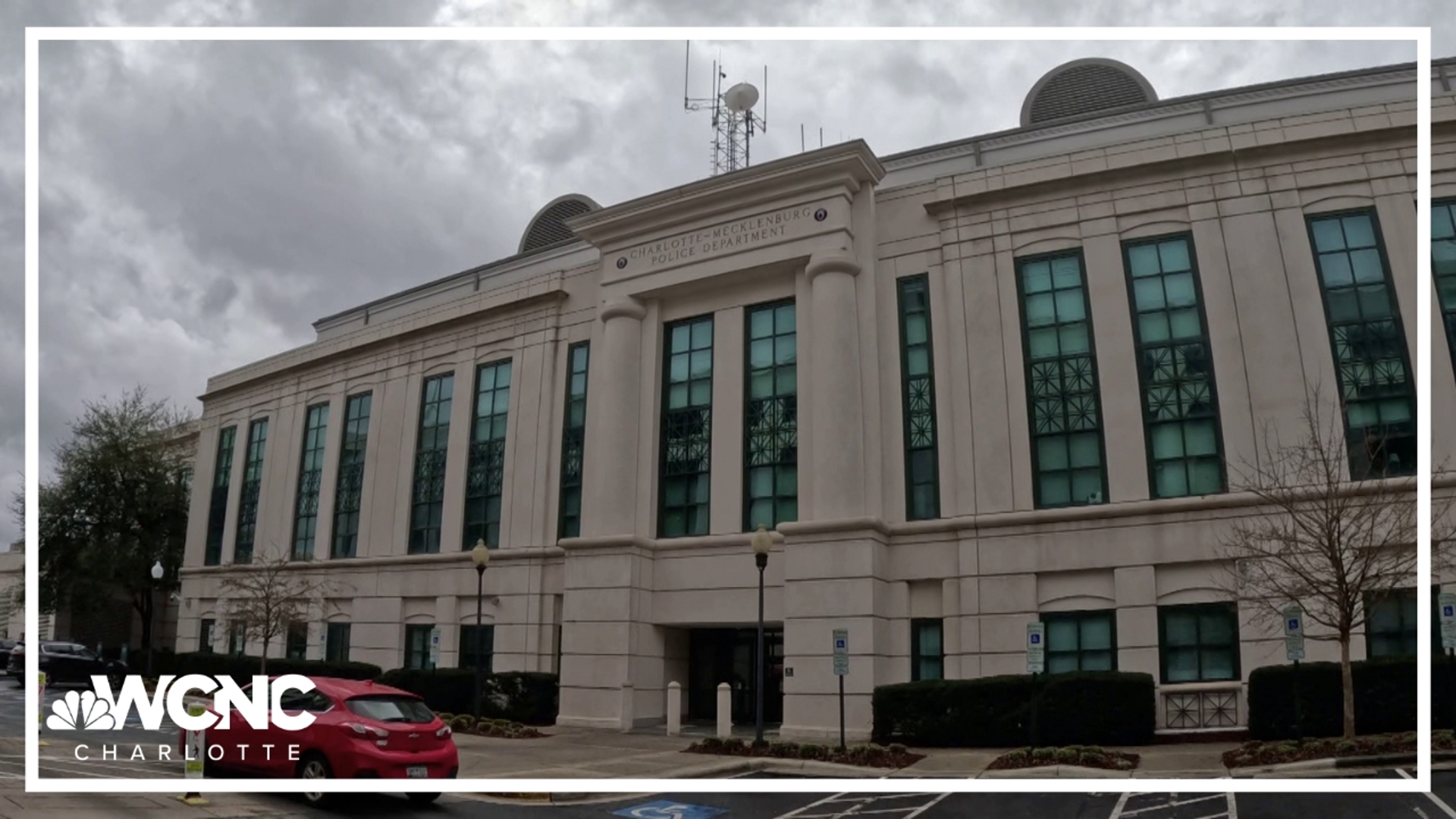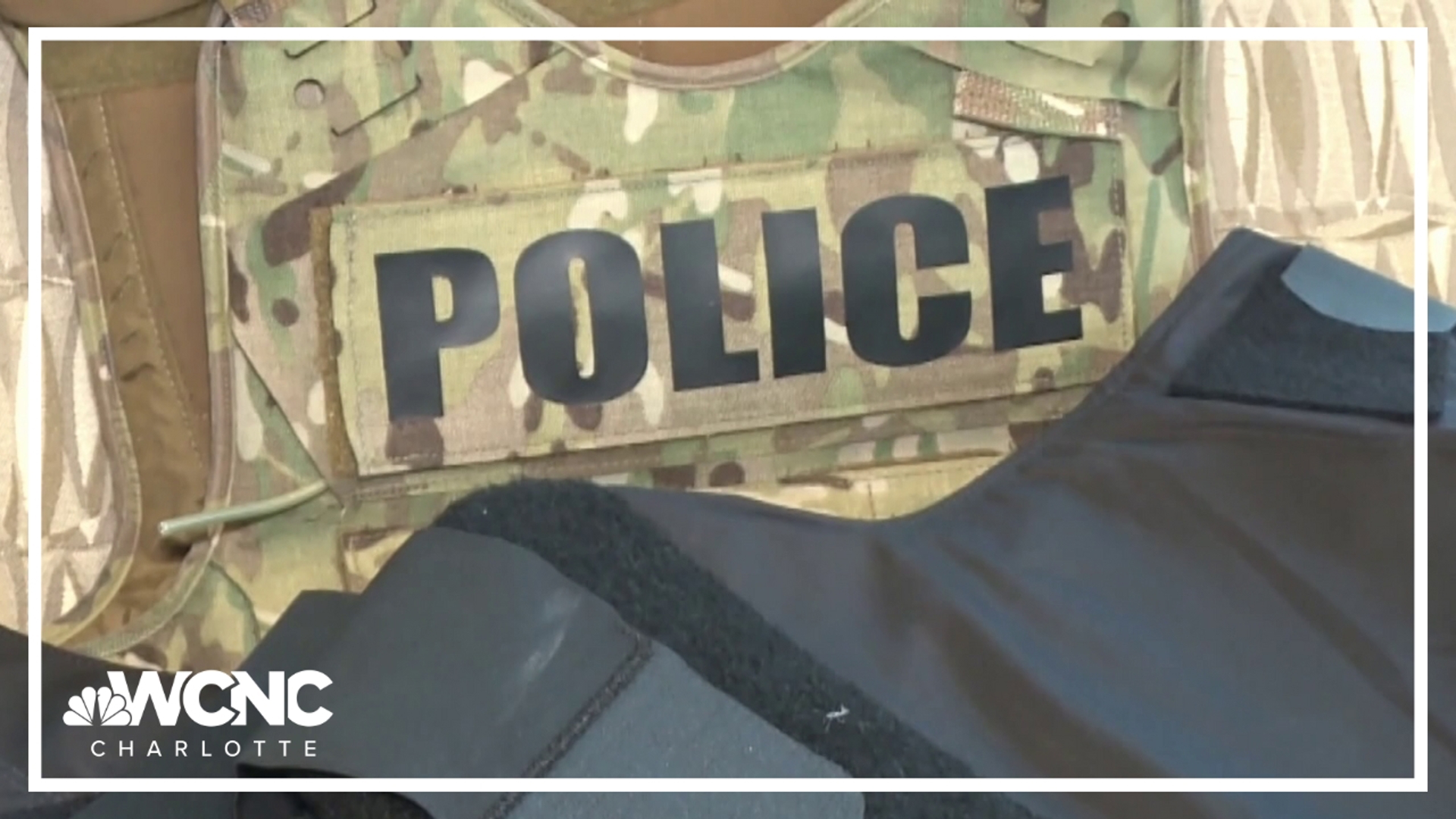CHARLOTTE, N.C. — A newly released investigation by Mecklenburg County's district attorney concluded police officers who responded to the deadly April 29 east Charlotte shootout that killed four officers were justified in killing the shooter.
In his report, District Attorney Spencer Merriweather found had officers "not responded to an imminently deadly threat with lethal force, as difficult as it is to imagine, the outcome could have been even more catastrophic."
According to his investigation, when the U.S. Marshals Service Carolinas Regional Fugitive Task Force arrived to serve a warrant on Terry Hughes Jr., the man was standing in the side door of his Galway Drive home. Upon seeing the officers, Hughes retreated inside as the task force surrounded the home and used a loudspeaker to announce their presence and demand he exit, the report said.
At that point, the investigation found Hughes began firing from an upstairs rear window and then alternated firing at officers between that window and a side window upstairs. After an officer down call came over the radio, hundreds of police began responding to the scene. Charlotte-Mecklenburg Police Department Officer Joshua Eyer was among them.
The report found Eyer and others approached the back of the home looking for a safe route to get to three downed officers. They then made their way to a tree in the backyard where Deputy U.S. Marshal Thomas Weeks, Jr. "had been struck."
According to Merriweather, Eyer and Task Force Officer Samuel Poloche, along with three other CMPD officers, were struck by additional shots from Hughes "as they took cover behind the tree." He continued saying Task Force Officer William Alden Elliott and another task force officer were struck at the fence line on the west side of the home.
Eventually, Hughes jumped out of a front window, armed with an assault rifle, at which time police killed him, according to the report.
"Target's down," an officer said just after 1:50 p.m., according to a previous WCNC Charlotte investigation that reviewed hours of police radio communications.
Although officers in the front of the home communicated he was dead, officers on the side of the home did not know, the district attorney's report said.
RELATED: What recordings reveal about east Charlotte shooting that killed 4 law enforcement officers
As those officers tried to reach an injured task force officer, uninformed about the shooter's fate, the DA's report found an officer "believed he saw movement at the upstairs side window where the decedent had previously been firing" and fired a single shot at the window.
"The guy in the front yard is down, and there's somebody inside shooting," an officer said at 2:03 p.m. on the audio recordings previously reviewed by WCNC Charlotte.
In his report, Merriweather went into more detail about these critical minutes.
"This shot caused officers who had received the earlier communication that the decedent was down to believe that there was an additional shooter in the residence," Merriweather wrote. "Over the course of the next ten minutes, officers in the rear of the residence discharged cover fire at the rear window of the home as they evacuated TFO Poloche, Officer Eyer, and DUSM Weeks Jr. Officers on the side of the residence discharged cover fire as they evacuated the injured task force officer. At 1:59 p.m., CMPD officers used an armored utility vehicle to drive to the side fence line and evacuate TFO Elliott."
By 2:40 p.m., all the injured officers had arrived at area hospitals, according to the audio recordings previously obtained by WCNC Charlotte.
According to the DA's report, the four officers killed never fired their weapons prior to being shot. His investigation confirmed what CMPD previously said: there was no second shooter.
Even before the DA's report was published on Thursday, CMPD had confirmed there was only one shooter who used only one gun.
In a news conference in late May, CMPD tried to dispel rumors about a second shooter and addressed concerns about friendly fire among officers.
"There was no friendly fire during this incident," CMPD Deputy Chief Tonya Arrington said at the time.
The shooting on April 29 took 17 minutes, according to CMPD. The shooting took the lives of the four law enforcement officers and injured nine other law enforcement officers.
An autopsy found Hughes had THC in his system at the time of the shooting. Hughes had a lengthy criminal record, including being arrested by CMPD in May 2021 for multiple drug charges.
While Merriweather interviewed many officers for this investigation, his report said two task force officers declined to be interviewed or offer any written statements.
His review only focused on the use of forced by the officers. The review did not "address issues relating to tactics, or whether officers followed correct police procedures or directives of CMPD or other agencies."
When WCNC Charlotte interviewed former FBI Assistant Director Chris Swecker in recent weeks, he said many burning questions remain.
"Why that day? Why that time?" Swecker wondered. "Why in a high-risk arrest like this were they hitting the place at 1:30 in the afternoon and why did they lose the element of surprise? How did they lose the element of surprise, because that's tactical 101...Taking down somebody at 1:30 in the afternoon without the element of surprise is not very good tactics."
He suspects there's a "thorough" investigation at the federal level. In the days after the shooting, USMS Director Ronald Davis pledged the agency would review the events of that day, look for lessons learned and investigate ways to prevent future deadly encounters.
A USMS spokesperson told WCNC Charlotte the agency is not prepared to forecast a timeline for the completion of its administrative review.
Former FBI agent and federal prosecutor M. Quentin Williams previously told WCNC Charlotte it's critical the agencies learn from any potential mistakes they make.
"There could have been exigent, emergency circumstances," Williams said of the task force's timing that day. "[Like] he was going to be there for only 15 minutes and he was leaving and we don't know where he's going to go, so we go get him now."
Williams said his burning question is also tied to timing.
"That day, that time, that place. Why?" he asked. "Why during the day? Usually it's at night. We always try to use surprise as leverage."
In the days after the shooting, CMPD Chief Johnny Jennings said he wasn't privy to the intelligence that day and declined to second guess the actions of the officers. saying he believed they did everything appropriately.
"There is no good time. Why not?..." he asked when questioned by WCNC Charlotte on May 1. "...I'm not going to ever Monday morning quarterback this. There's nothing to Monday morning quarterback."
Contact Nate Morabito at nmorabito@wcnc.com and follow him on Facebook, X and Instagram.


